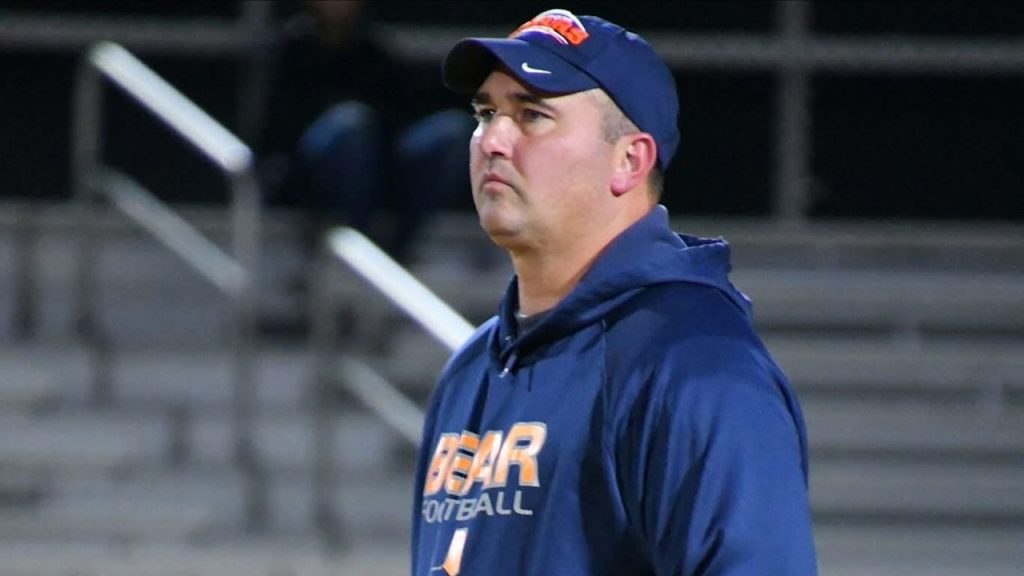The Disappearance of a Virginia Football Coach Amid Serious Allegations
In a troubling development that has shaken a Virginia high school community, Travis L. Turner, a 46-year-old football coach, has vanished amid an investigation into alleged child pornography offenses. Authorities recently announced they have obtained ten warrants charging Turner with five counts of possession of child pornography and five counts of using a computer to solicit a minor. The coach was reported missing on November 21st, when Virginia State Police investigators were en route to speak with him about the ongoing investigation. Officials had visited his Appalachia home the previous day and were returning only for a conversation, not to make an arrest. In the wake of his disappearance, Turner’s profile has been removed from Union High School’s website staff directory, while an extensive search involving drones, K-9 units, and foot patrols continues across Wise County.
The school district has responded to the situation with caution and procedural diligence. Initially, Wise County Public Schools released a statement confirming that an unnamed staff member had been placed on administrative leave with pay pending an external investigation, describing this as “standard procedure and not a determination of wrongdoing.” In a subsequent statement, the district acknowledged that law enforcement had filed charges against the staff member already on leave, stating that “the individual remains on leave and is not permitted on school property or to have contact with students.” The district has committed to cooperating with law enforcement as the legal process unfolds but has declined further comment due to the active nature of the case and personnel privacy concerns.
This disturbing case has personal dimensions that highlight the human impact of such allegations. Turner’s wife, Leslie Caudill Turner, has publicly defended her husband, telling The Daily Mail that “none of that is true,” and describing him as “a good dad and a good husband.” Her emotional plea—”we want him home”—underscores the family turmoil created by both the allegations and Turner’s unexplained disappearance. The investigation continues to evolve, with authorities indicating that additional charges may be pending as they work to locate the missing coach, who was last seen wearing a gray sweatshirt, sweatpants, and glasses according to Virginia’s missing person database.
Tragically, this is not the first time Union High School has faced such a crisis. In 2023, another teacher and coach at the same school, Timothy Lee Meador, pleaded guilty to two charges of indecent liberties with a child and served a prison sentence of one year and three months. Reports indicate that Meador’s and Turner’s employment at the school overlapped, raising questions about the school’s hiring and supervision practices. These consecutive cases have undoubtedly left the school community reeling and searching for answers about how to protect their students while respecting due process for the accused.
The situation highlights the complex challenges faced by school administrators when allegations arise against staff members. The district must balance protecting students, respecting employee rights, maintaining transparency with the community, and cooperating with law enforcement. In this case, the school has taken immediate action by placing Turner on leave and restricting his access to students and school property, while also being careful not to make premature judgments about his guilt or innocence. This measured approach reflects the difficult position in which schools find themselves when confronting such serious allegations against their employees.
As the investigation continues and the search for Turner intensifies, the community faces uncertainty and concern. Law enforcement has asked anyone with information about Turner’s whereabouts to contact the Virginia State Police, hoping for cooperation from the public in locating the missing coach. The case raises broader questions about screening processes for those who work with children, the effectiveness of background checks, and how communities can better protect vulnerable young people. Whatever the ultimate outcome of this specific case, it serves as a sobering reminder of the responsibility schools bear to ensure the safety of students and the importance of vigilant oversight of all who interact with children in educational settings.


